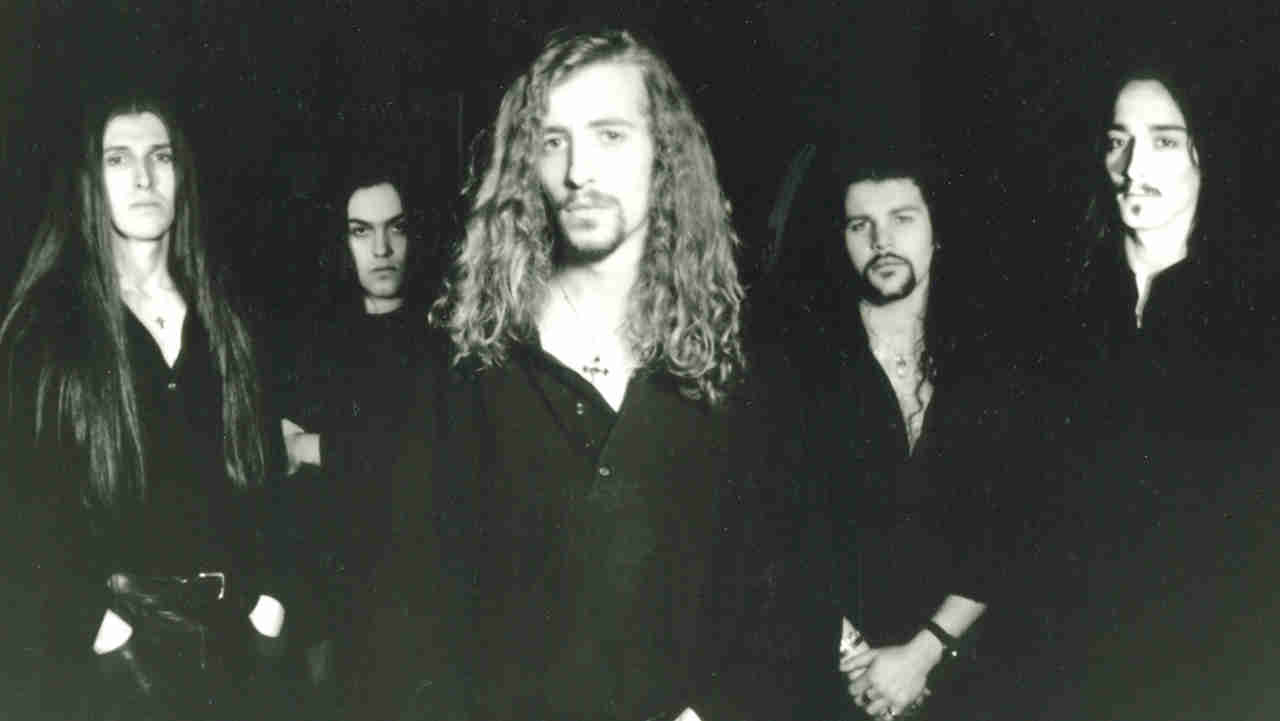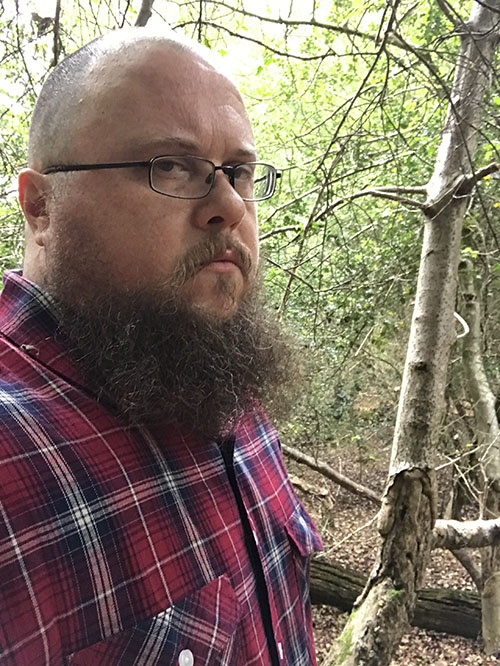Along with Earache and Relapse, the UK’s Peaceville Records is one of metal’s great independent labels, acting as a launchpad to such extreme metal luminaries as Paradise Lost, At The Gates, Darkthrone and countless more. In 2017, Peaceville founder Hammy looked back on the history of a label that helped metal in the 1990s and beyond.
In his brilliant autobiography Anything For A Peaceville Life, Paul ‘Hammy’ Halmshaw traces the foundational impetus for Peaceville Records to the day he bought his first tape-to-tape boombox in 1981. Then drumming with Dewsbury anarcho-punks the Instigators, this state-of-the-art tech gave him an independent source for producing his band’s early demos, but soon Hammy’s obsessive enthusiasm for DIY music saw him develop a regular schedule of cassette releases by cult punks like the Subhumans, Chumbawumba, MDC, Disorder and the Stupids.
After several lean years of home-dubbed C60s, photocopied inlays and mindbending home brew, Peaceville Tapes became Peaceville Records in 1987, Hammy solidifying his position as UK hardcore scene lynchpin with a string of vinyls by the cream of Britain’s late-80s crust crop. Deviated Instinct, Electro Hippies, Axegrinder, Doom, Decadence Within, Atavistic: these impassioned rackets were Peaceville’s earliest stock-in-trade.
It was dark, loud and aggressive, but it wasn’t heavy metal. Peaceville’s inaugural seven-inch flexi sampler Will Evil Win? was so-named because of the metal vs hardcore controversy raging in the late 80s, when many hard-left punk purists strenuously repudiated the apolitical fantasies of HM. The breaking of metal/punk boundaries was the theme of Hammy’s first appearance in the mainstream media: a two-page feature in RAW magazine, to celebrate Peaceville’s first fully fledged metal release, Bastard Ballads by Bradford headbangers Toranaga.
“I was very scared at first when I came to sign them because I thought that it would bring the whole label down,” confessed the 23-year-old Hammy in 1988.
Hammy still remembers the malice and bitterness of the punk vs metal war: “There were death threats flying around all over the place back then,” he reveals. “They were burning my effigy at punk bonfires. Just about everyone disowned me – well, all the ones who didn’t count. Soon you just think, ‘Why did I ever help these people out?’”
Toranaga were soon poached by major label Chrysalis – before falling apart – but Bastard Ballads hadn’t cemented Peaceville as a bold new force in the metal world. Two very different bands would soon provide that resoundingly powerful breakthrough. One lived 5,000 miles from Peaceville’s Dewsbury office, in sunny California; the other, 10 miles down the road in rainy Halifax.
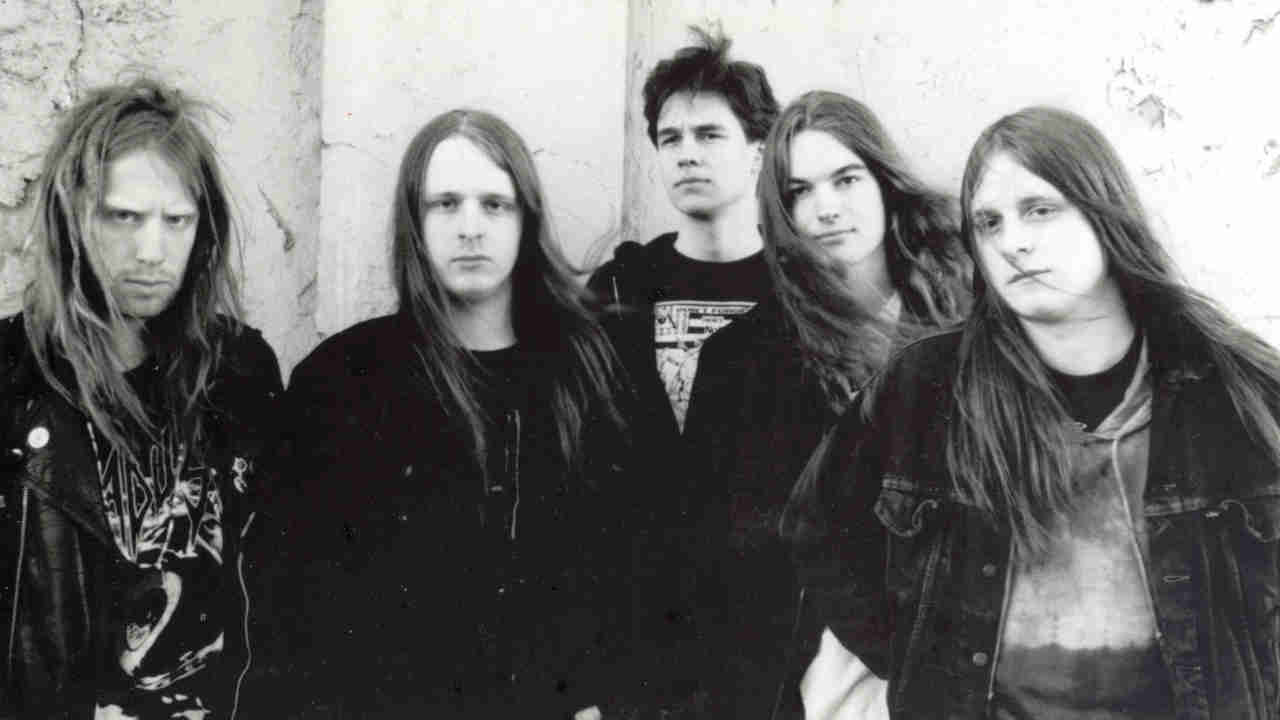
The former were Autopsy – ex-Death drummer Chris Reifert’s hot new outfit – who came highly recommended by Carcass/ex-Electro Hippies frontman Jeff Walker. Hammy fell in love with their Critical Madness demo, and Peaceville unleashed Autopsy’s Severed Survival debut in early 1989. This was the big one – not only the beginning of a symbiotic band/label relationship that continues to this day, but also of Peaceville’s extreme metal pedigree. “Autopsy were the real saviours of Peaceville and the main reason Paradise Lost and Darkthrone signed,” affirms Hammy, “so god bless the dopeheads.”
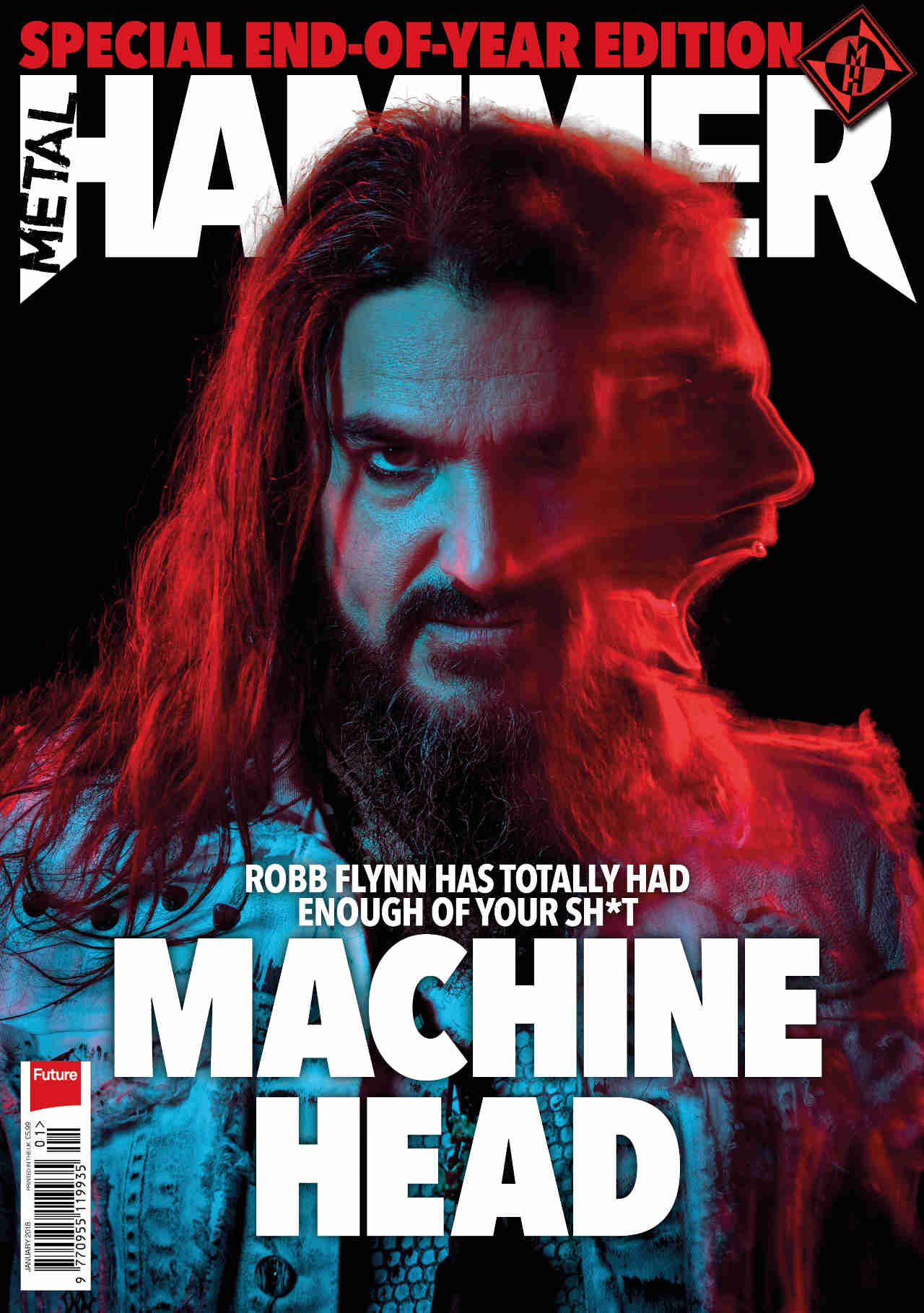
Around the same time, Hammy introduced himself to Paradise Lost after spotting Nick Holmes wearing a Doom t-shirt at a Bradford metal club. Peaceville’s arch 90s rival label, Earache, were also sniffing around, but after Hammy wangled the band studio time and produced their 1989 Frozen Illusion demo, PL stayed with him for their 1990 debut, Lost Paradise, and 1991’s sublime Gothic, before decamping to Music For Nations and global stardom. PL were also crucial to Peaceville in one other respect: they played Hammy the first two albums by Virginia’s veteran doom warhorse Pentagram. Originally released with limited distribution in the mid-80s, Peaceville gave them iconic new sleeves and mixes in 1993 and secured a reunion album, 1994’s Be Forewarned, rescuing the drug-addled pioneers from obscurity.
Paradise Lost had already flown the Dewsbury coop when Peaceville introduced two other key acts from northern England, later to join PL as the fabled ‘Peaceville Three’: My Dying Bride and Anathema. Both bands immediately brought their own hugely distinct talents to the blossoming form, and since proved equally durable, influential and respected. But to any who remember 1991, a more accurate ‘Peaceville Three’ should involve Autopsy and Darkthrone. Alongside PL, these invaluable maniacs were responsible for blazing three distinct trails – doom, death and black metal – each dominating from leftfield forms that came to define the 90s underground and beyond.
However, when Darkthrone joined Peaceville for Soulside Journey in ’91 (“We sent the demo to seven or eight labels,” recalls Darkthrone drummer Fenriz, “but we wanted Peaceville”), black metal wasn’t what the label or band signed up for. Swiftly disowning their sludgy tech-death debut, these Norwegian iconoclasts perplexed their label with a viscerally raw, jarring new sound on 1992’s A Blaze In The Northern Sky.
“We needed to reach another destination and we were hellbent to get there,” asserts Fenriz. “The soundscape was the argument, we had finally gotten the soundscape that we wanted and it was sad to hear that Peaceville wanted to remix. Then we just said we could release it at Deathlike Silence instead… so they decided to try to release it as is.” The result was a seismically important and exciting record, even by early Peaceville’s standards.
In tandem with the progressive intensification of metal at this time, Hammy was also plugging a raft of radical, unclassifiable outfits under the banner of Dreamtime Recordings, after experiencing instrumental Dutch head-manglers Kong live. Subsequent Dreamtimers included spooky industrial duo GGFH, Drug Free America’s acid-trance and Tekton Motor Corporation – Slovenian ambient techno with thrash guitars and Formula One samples. These abstruse impulses alternated with Peaceville’s main metal acts on compilations like Vol 4 and Broaden Your Horizons, the latter title neatly encapsulating the label’s ethos of uniting disparate transgressive sounds under the cohering gaze of Peaceville’s iconic ‘sacred star’.
On these seminal samplers a generation of metalheads had their third eyes thoroughly squeegeed – although few invested in full albums. Hammy estimates that Dreamtime lost him over £100,000, but affirms, “I’d rather not change a single thing, as crazy as it was… Every dumbass costly thing came from a place. Admittedly it was a smoky green boozy place, but it meant something at some point.”
The plug was finally pulled on Dreamtime in 1997; by then Music For Nations had bought a 50% share of Peaceville, the emphasis refocused firmly on metal. However, Darkthrone had been dropped after stirring up a nest of anti-semitic vipers on 1994’s Transilvanian Hunger (“It was a shit year and I didn’t think, just lashed out with my back against the wall,” rues Fenriz), and Autopsy split up in 1995, marginalised after the MFN deal.
On Peaceville’s first website in 1996, new signings being groomed for stardom seemed to have more consciously accessible appeal. The Blood Divine featured Anathema’s former singer, Darren White, alongside Cradle Of Filth alumni, and hopes were clearly high for a new breakthrough artist, but their hippy- goth heavy metal didn’t catch on, despite an enjoyable, well-promoted debut, Awaken. After a less enjoyable, less well- promoted second album, the band fizzled out. An identical fate befell 1996’s other shot at goth-metal glory, Dominion, while promising acts like Blackstar (featuring Carcass’ Jeff Walker) and Acrimony only managed one album for Peaceville before imploding. Did commercial pressure to succeed destroy them?
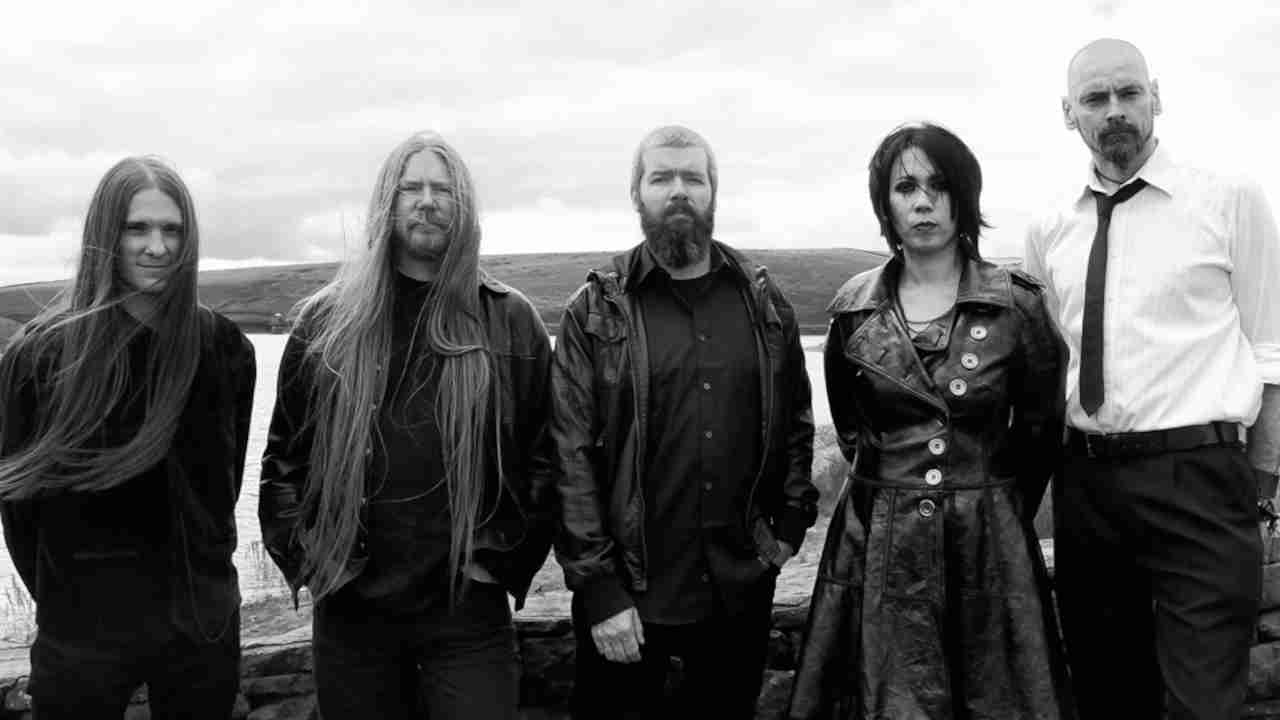
“I just think they were a reflection back of where the scene was at that time,” reflects Hammy. “It’s funny but I see those times as a bit bloated and I don’t think MFN were solely to blame – I think the whole scene had gone off a bit.”
Not all of Peaceville’s late-90s signings were defunct by the millennium. Temperatures soared when Hammy and Lisa, his wife and Peaceville co-manager since the earliest days, snagged Opeth for 1999’s majestic Still Life. Alas, the prog-death Swedes were unsportingly poached for MFN’s main roster (briefly returning to Peaceville for 2007’s The Roundhouse Tapes). They had better luck with Mikael Åkerfeldt’s buddies Katatonia: hard-workers of prolific quality, the gloomy Swedes remain a perfect fit for the label after 18 years.
In 2000, Peaceville was bought by Snapper Music, initiating a profile-raising campaign of reissues and ‘Best Of’s, but the urge remained to break new talent. With At The Gates’ Tomas Lindberg helming a kaleidoscopic fusion of hardcore, prog, industrial and metal, The Great Deceiver seemed a dead cert in 2002, but once again, an exciting new Peaceville act disappeared after two albums. Ditto Soundisciples (Bristolian genre-mashers with connections to Portishead and Massive Attack) and avant-garde Norwegians Beyond Dawn, while varied hopefuls like Asgaroth, Charger, The Provenance and Akercocke only managed one LP for Peaceville in the 00s.
An important bridge was rebuilt in 2004 when Hammy reached out to Darkthrone, 10 years after the controversy that ended their relationship. “They invited us on a cool trip to see castles in northern England and Scotland to bring us back together,” says Fenriz. “Worked like a charm and we could finally have our own little portable studio, and work the way we wanted to without interference.”
Another factor in Darkthrone’s return was a new imprint, run by the band: Tyrant Syndicate. This short-lived concern shook up the 00s schedule with prime black thrashing death by Aura Noir, Old and Obliteration, as well as Abscess’s last LP. Formed from the ruins of Autopsy, Abscess represented another old Peaceville friendship rekindled, the psychedelic death-punks belching up some twisted filth before a reformed Autopsy returned to the stable in 2009, where they proudly remain.
2006 was Peaceville’s busiest year since their early 90s heyday, with new releases by Darkthrone, My Dying Bride and Katatonia plus two exciting new signings offering atmospheric twists on dark progressive metal: Novembre and Madder Mortem. Yet that November, Hammy and Lisa tendered their resignations.
“It had been building for maybe a decade and there was no enjoyment left in us,” explains Hammy in his autobiography. “No creative spark to run on.”
His parting shot was a doozy: signing Japanese all-female blackened crust trio Gallhammer. Clearly, it was an important year for cementing the legacy. “I think we owed it to the bands who had stuck with us through thick and thin not to destroy it for no reason,” says Hammy. “It’s always been a bigger entity than just me.”
Since then, Peaceville continue balancing old and new, welcoming back bands from their past like Pentagram, Akercocke and Morta Skuld while headhunting suitably Peacevillian innovators and eccentrics like Mysticum, Fleurety, Dødheimsgard, Khold, Mork, Sikth and TOMB. UK metal titans Cradle Of Filth – who poached their share of musicians from Peaceville bands over the years – finally joined the Ville family for a clutch of releases from 2010-12, while in 2014 death metal supergroup Bloodbath represented the return to Peaceville of Paradise Lost’s Nick Holmes, further strengthening bonds between past and present for this abidingly special, universally respected label.
Originally published in Metal Hammer issue 304, December 2017
